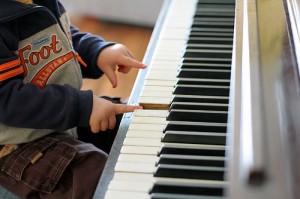 As piano teachers, we wear many hats. School teachers often teach only one age group, or a few age groups. Piano teachers are usually expected to be able to teach from age 5 to 95! But as we all know, teaching a 5-year-old is much different from teaching a 15-year-old, or a 55-year-old. 🙂
As piano teachers, we wear many hats. School teachers often teach only one age group, or a few age groups. Piano teachers are usually expected to be able to teach from age 5 to 95! But as we all know, teaching a 5-year-old is much different from teaching a 15-year-old, or a 55-year-old. 🙂
In recently thinking about this challenge of being able to effectively teach various age levels and maturities, I decided to make a list of some of the things I’ve learned over the past few years about teaching young ages — I’m thinking, ages 6 and under. I learned some of these things from an Early Childhood Music course I took during grad school and various piano pedagogy courses — but I learned many of these things purely from experience. Here goes:
- Don’t ask questions that you don’t really want answers to. Examples: “Did you like that?” or “Do you want to try it on your own now?” Sometimes if given the option to opt out of something, children will say “no” simply because you’ve given them a choice. 🙂 It’s better to make statements.
- Give them time to think. When you ask a question, wait for them to process and compose a response. Sometimes we ask questions and then blow right on without getting an answer. Young children need this think time. If you don’t really want to wait for an answer, then don’t ask the question in the first place. Continue reading “9 Tips for Teaching Piano To Young Ages”


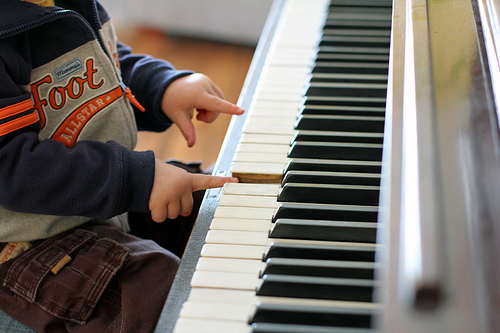
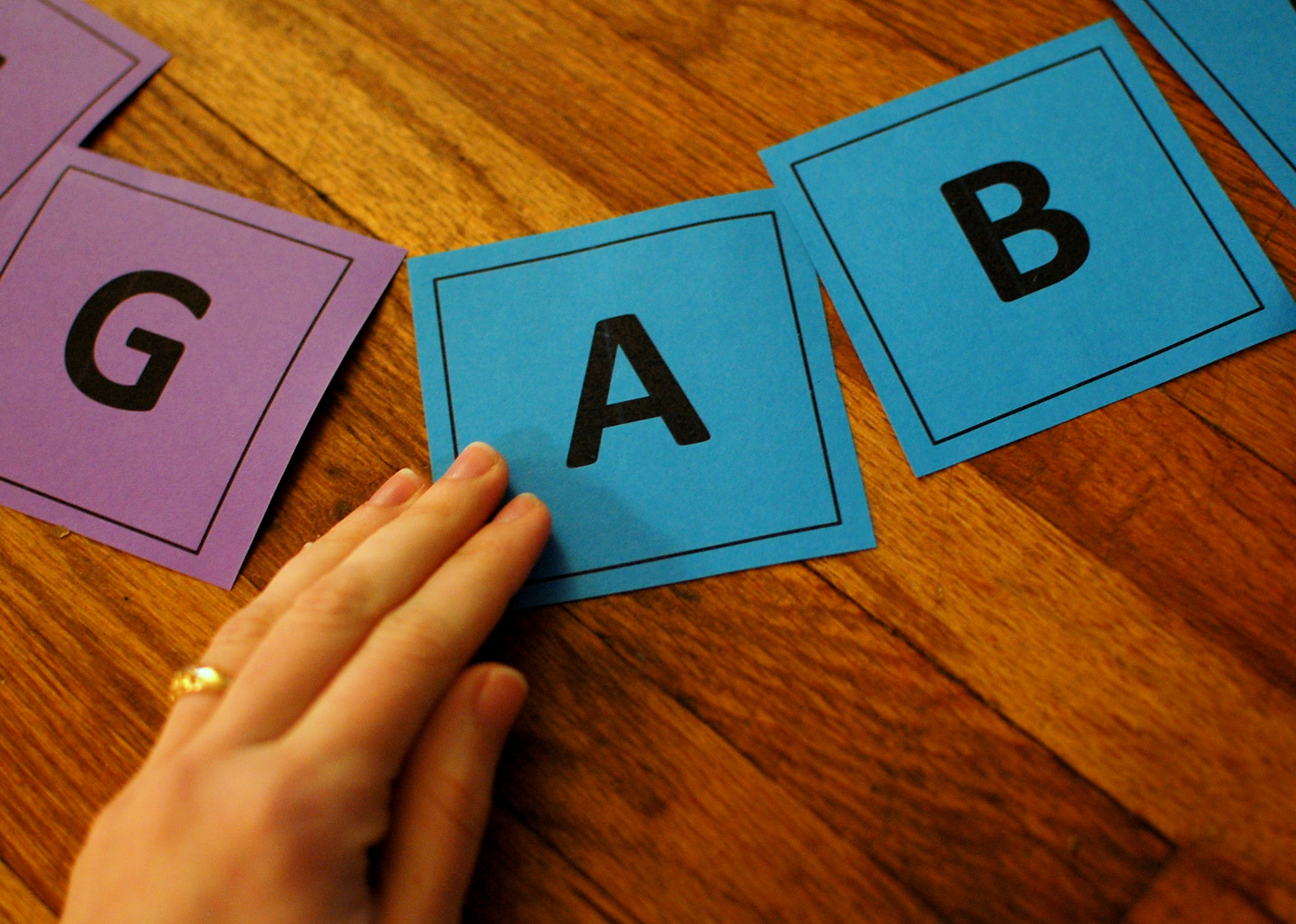
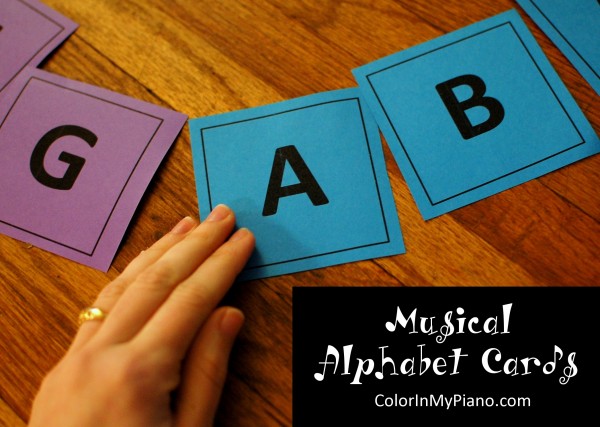

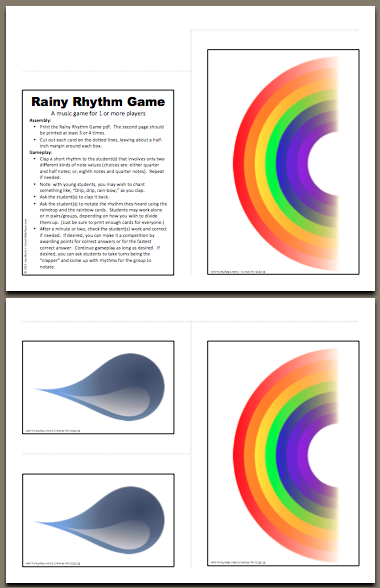
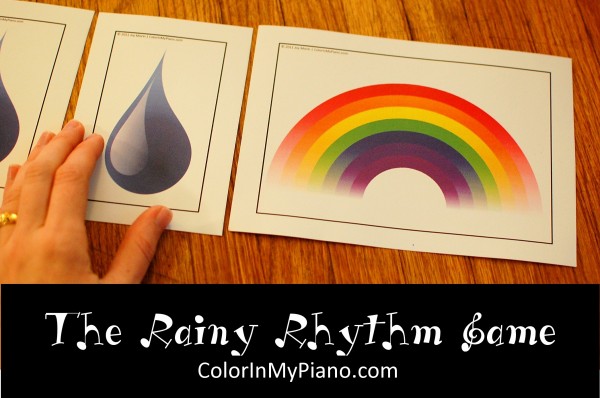
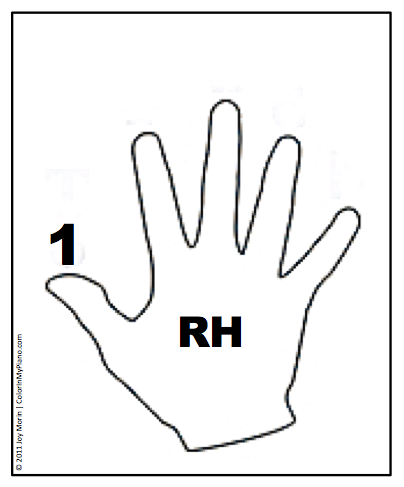
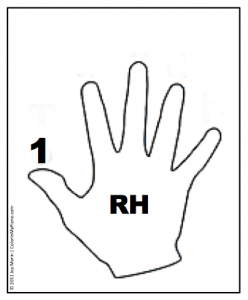 I have two 5-year-old students signed up for a Piano Readiness Class, and our first class was yesterday! We had such a fun time. We sang songs, listened to music to find/walk to the beat, traced our hands to learn about RH/LH/finger numbers, and more. Best of all, we played the Piano Hands Hunt game — a simple game I invented on a whim yesterday as I was lesson planning. It was quite a hit! The girls asked to play it again next week — a request I’m happy to oblige!
I have two 5-year-old students signed up for a Piano Readiness Class, and our first class was yesterday! We had such a fun time. We sang songs, listened to music to find/walk to the beat, traced our hands to learn about RH/LH/finger numbers, and more. Best of all, we played the Piano Hands Hunt game — a simple game I invented on a whim yesterday as I was lesson planning. It was quite a hit! The girls asked to play it again next week — a request I’m happy to oblige!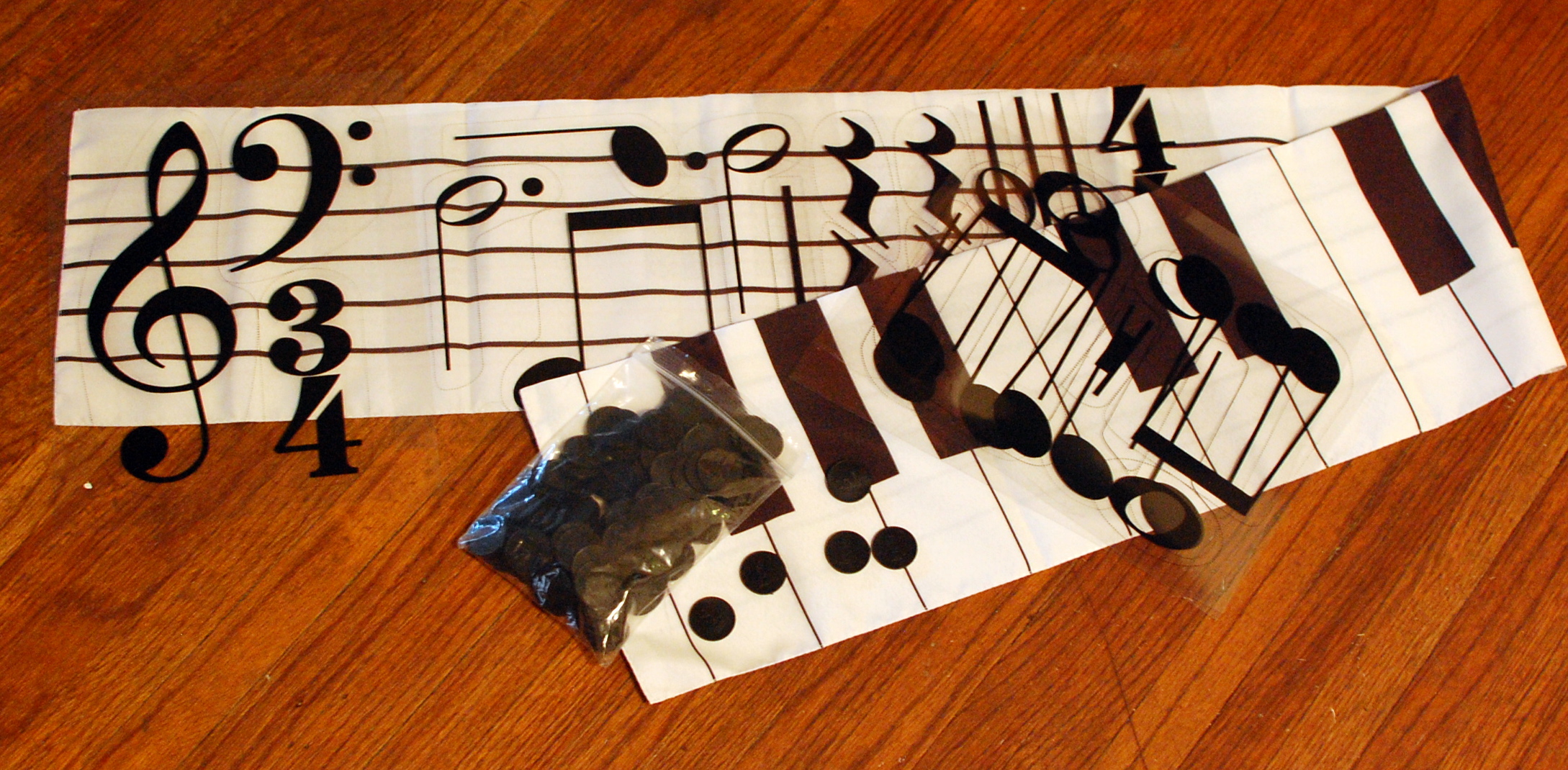
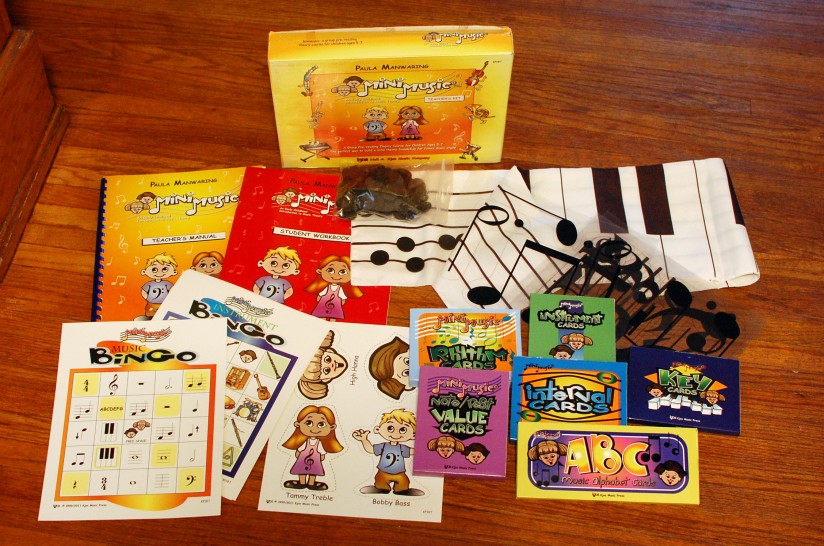
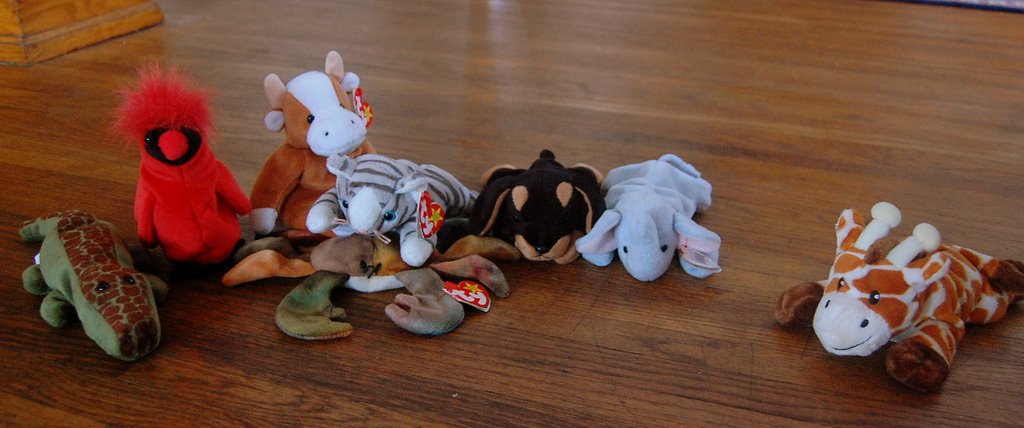

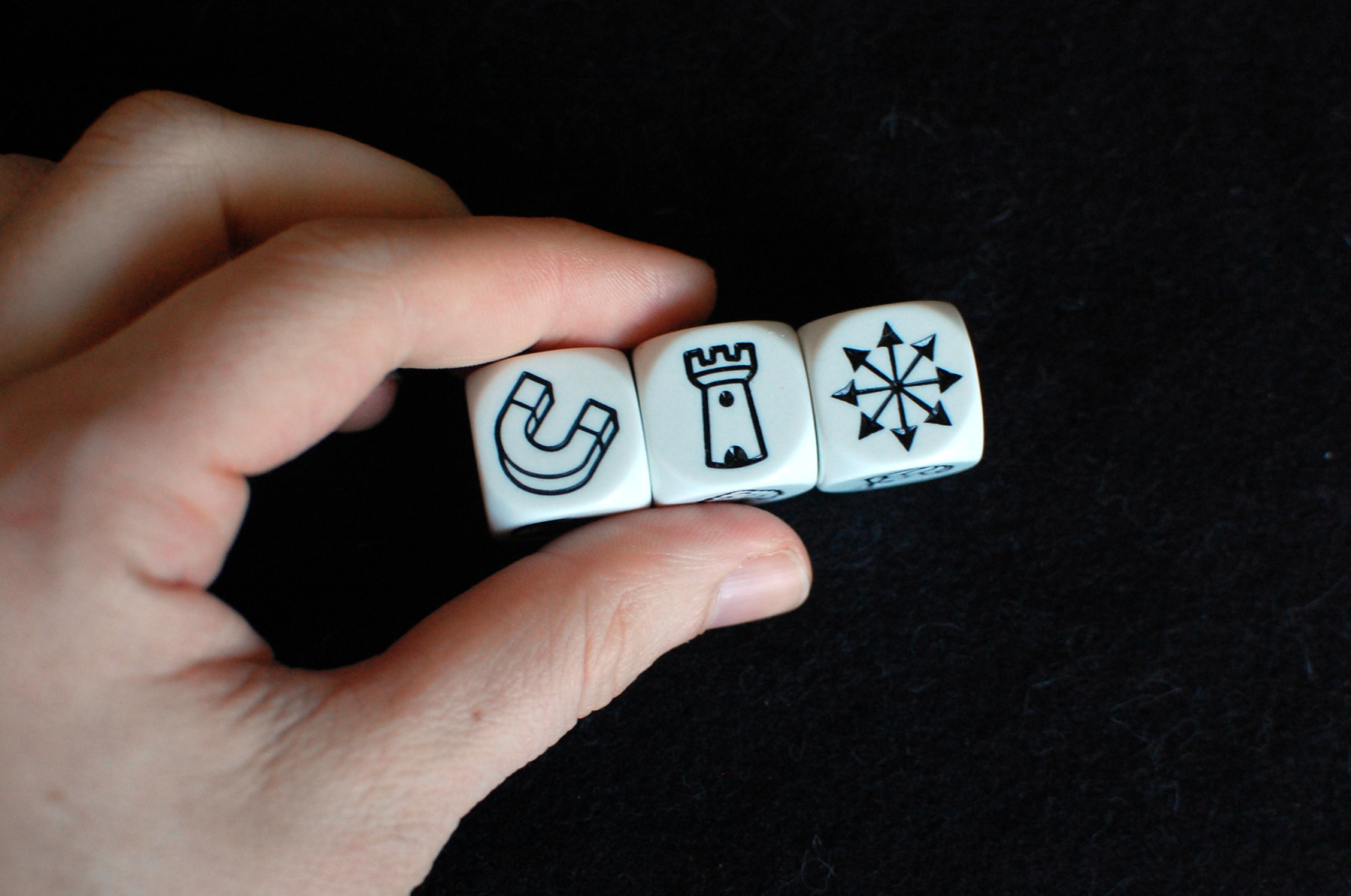
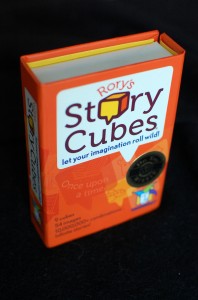
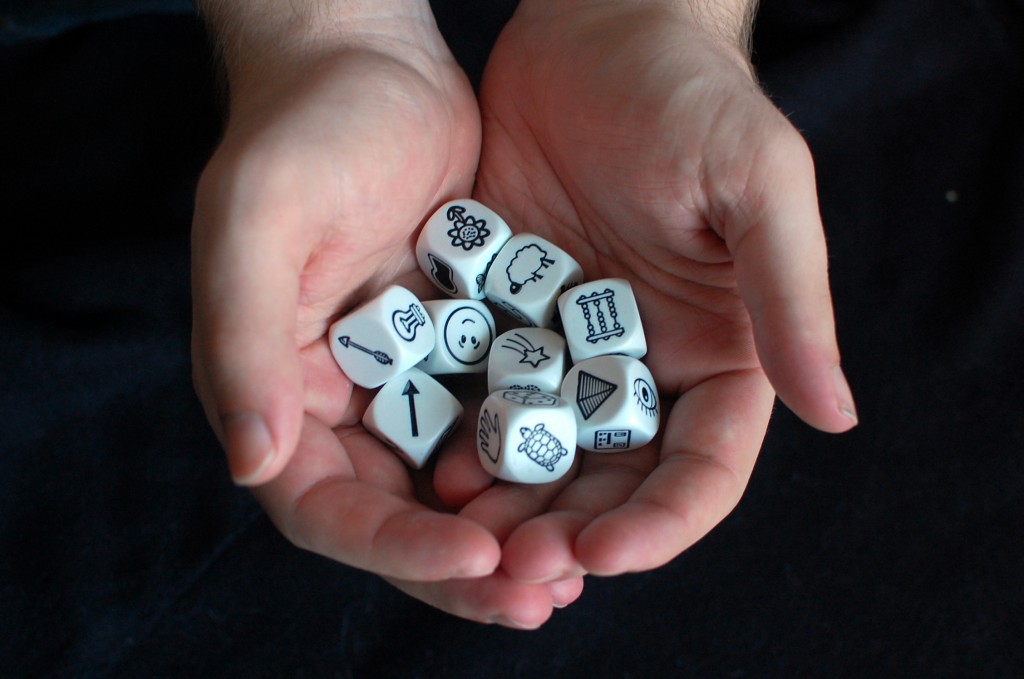
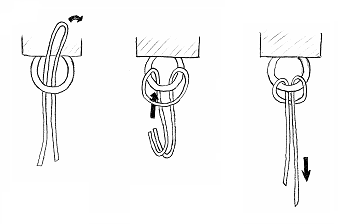
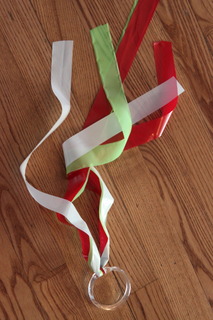
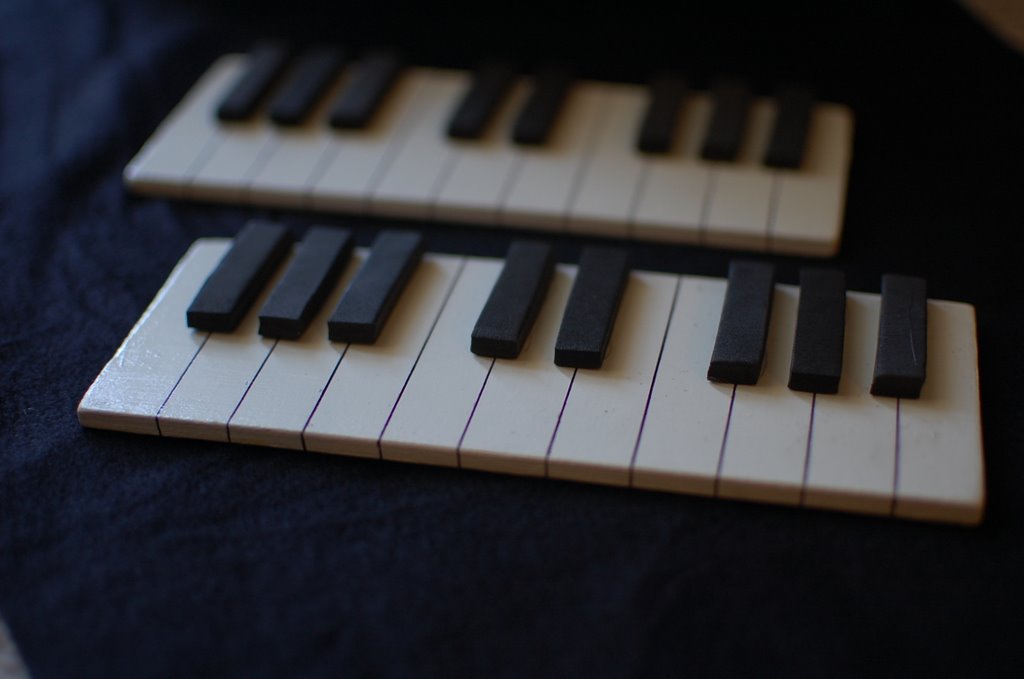
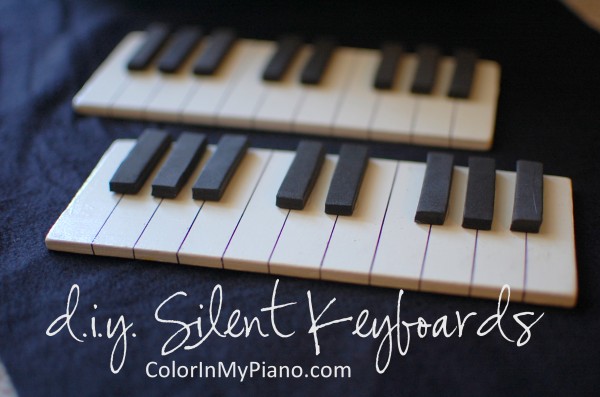
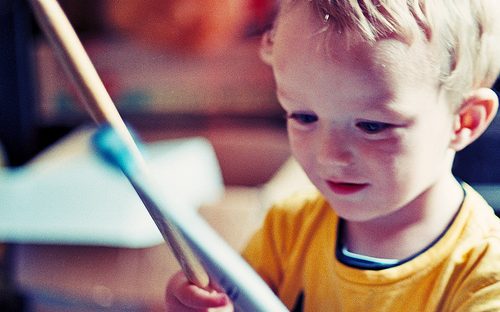
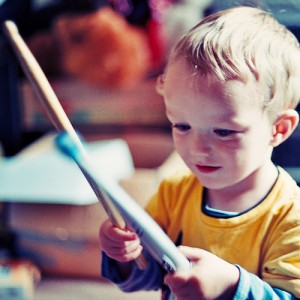 Developing a good sense of rhythm is one of the most challenging parts of being a piano teacher. It’s not something that arrives overnight, and it’s something that must be maintained as the student advances to music with more advanced rhythms and time signatures. It truly is something that must be developed.
Developing a good sense of rhythm is one of the most challenging parts of being a piano teacher. It’s not something that arrives overnight, and it’s something that must be maintained as the student advances to music with more advanced rhythms and time signatures. It truly is something that must be developed.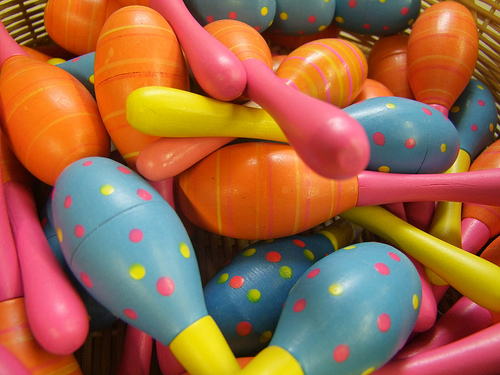
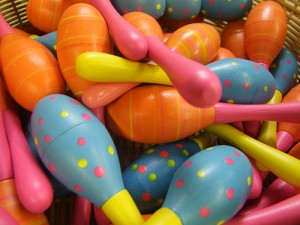 I’ve been digging around online lately, looking for early childhood music resources. (Yes, I’m sorry – I’m still on this kick!)
I’ve been digging around online lately, looking for early childhood music resources. (Yes, I’m sorry – I’m still on this kick!)